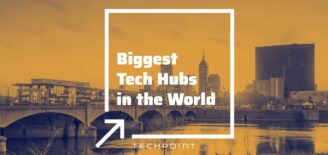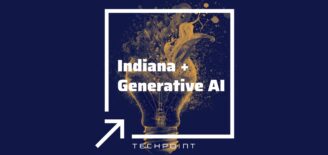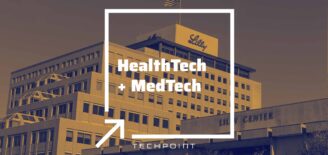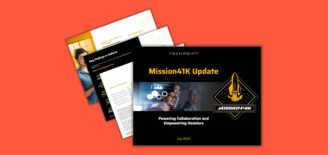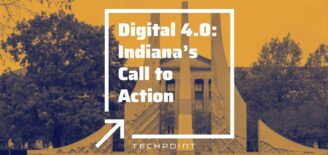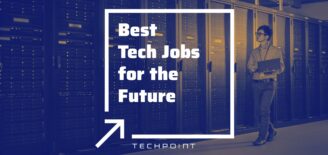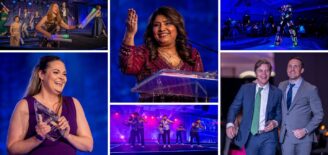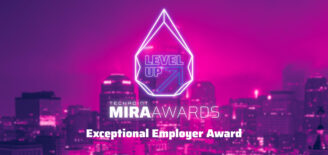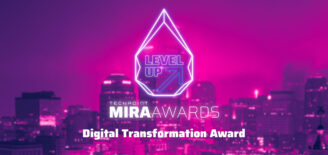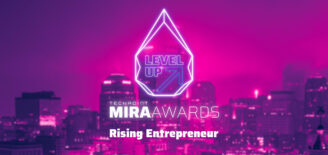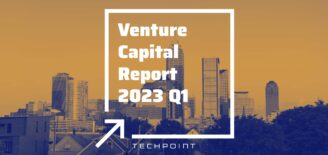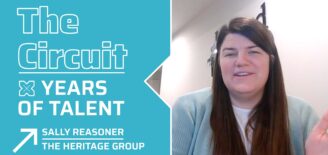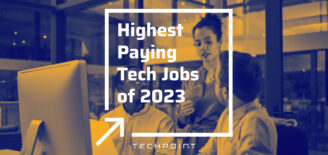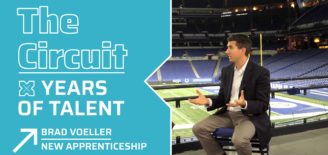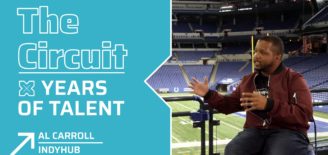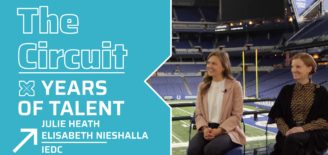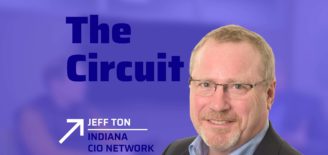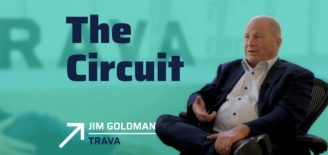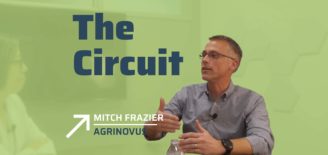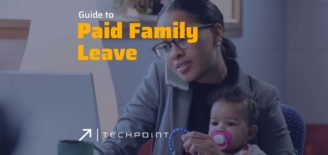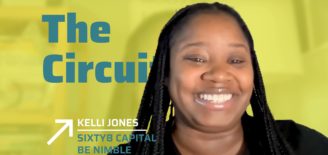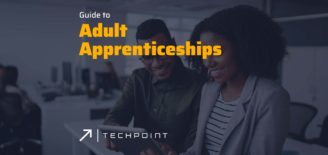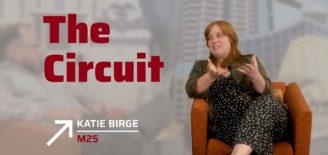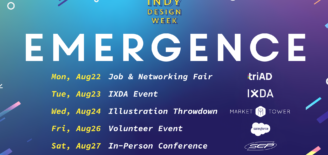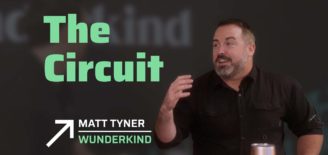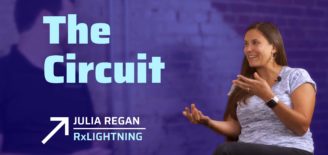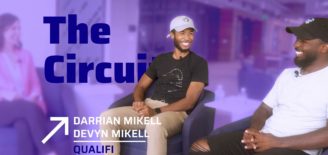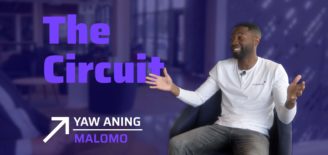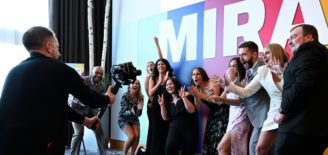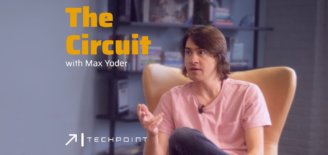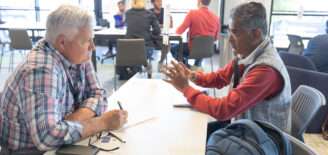Startup co-founder Rod Feuer always knew he would come back home to Indianapolis
Before co-founding sales deal management startup Costello in Indianapolis, Rod Feuer worked in Chicago and New York City at a top consulting company, a major financial institution, and a private equity firm. In 2010, he started on a more entrepreneurial path that included leadership roles at advertising and marketing tech scale-ups in the Big Apple.
Rod and his wife Adelaide (a senior VP with global communications firm Edelman) always knew, however, that they would eventually return to the Midwest and Indiana, in particular. Rod grew up in Indy and still has family and good friends who live here. Adelaide grew up in Michigan, so her family would be close by, too. It was always a matter of when, not if they would return to the Midwest.
“We both work, so having access to help was big. And it’s just great to have the kids close to their grandparents,” Rod said. “With two kids, living in New York City was no longer tenable just with housing and schooling costs. Now we have a house with a backyard in a wonderful neighborhood with great schools.”
It was through tech ecosystem accelerator TechPoint that Rod met Frank Dale, Costello’s CEO and co-founder, when the pair of entrepreneurs were both in the room during the Scale-up Company of the Year presentations for the Mira Awards (Indiana’s technology Oscars). Rod was serving as a Mira Awards judge and Frank was working with many of the presenting companies through TechPoint’s Tailwind program.
“I had a methodical approach to evaluating companies and asked a lot of questions — Frank really liked that,” Rod said. “We kept in touch and a couple months later, he walked me through his idea for ‘Last Mile’ [the original name for what is now Costello]. I had experienced the problem he wanted to solve firsthand and could immediately see the larger vision and future product roadmap.”
Rod and Frank began working together further developing this idea and getting to know one another better in the process. They discovered they have very similar values and complementary skill sets, which ultimately led Frank to invite Rod to join him in co-founding what is now a fast-growing startup with the potential to disrupt an entire industry.
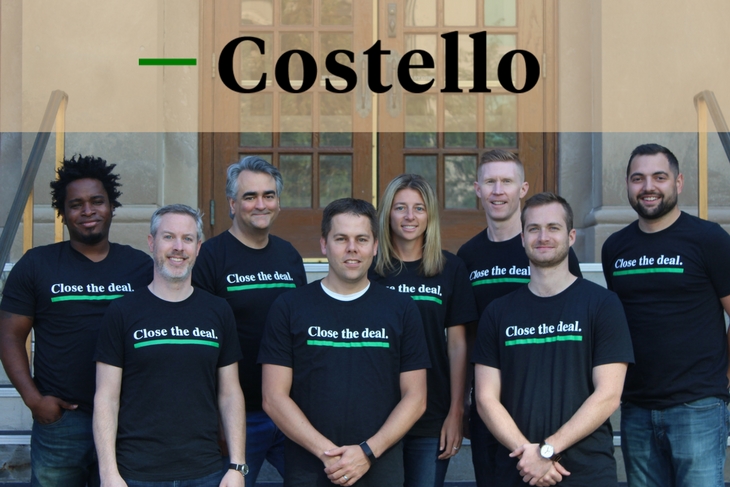
Read about how Costello is disrupting the sales profession in TechPoint’s feature story.
Obviously, there is a stark difference between living and working in New York City and Indianapolis. Rod says it’s a bit unfair to compare any city New York City when it comes to things like cultural and ethnic diversity and access to tech-skilled workforce and venture capital. He thinks Indiana really stands out, though, because of its overall low cost of living, access to amazing undergraduate talent coming out of Indiana’s research universities, and the state’s small but very collegial startup community.
“I would not have been able to co-found Costello while living in New York,” Rod explained. “Our current income would not have covered basic living expenses such as housing, childcare, and food at our desired standard of living. In Indiana, we can afford to own instead of rent a nice home and provide for our children and still be comfortable enough financially to co-found a high-risk startup!”
How would you describe the tech community in Indiana compared to other tech communities in which you’ve lived, visited or done business?
ROD FEUER: I’ve worked predominantly in NY’s tech community. That community has a wider variety of startups that includes both B2C and B2B companies, as well as industries like financial services (due to Wall Street proximity) and Ad Tech (due to Madison Avenue proximity), to name a few. There are more venture capital firms and more seed stage investors, in particular.
Indiana is positioned well for growth. In addition to the well-known recent, large exits (ExactTarget, Aprimo, Interactive Intelligence), a few companies have recently achieved growth that led to Series A- and B-level funding. Success begets success, and it takes several years for that success to percolate and become realized on a greater scale.
What and/or who have been the biggest influences on you and your career?
Being a Buyside Analyst: Before business school, I was an equity analyst covering a wide range of industries (specialty retail, industrials, trucking, airlines, business services, etc.). As a result, I learned about several different business models, as well as how to evaluate investment risk. I also began to develop better pattern recognition for understanding what works and what doesn’t. All three of these skills have been helpful, since they apply to almost everything I do today and help me understand the point of view of venture capitalists.
Being a Bain Consultant: My three years at Bain were like my MBA post-doctorate, and I worked alongside some of the smartest people whom I’ve ever known. It really honed by analytical and strategic skills, which complemented my investment background. As a result, I tend to have a good nose for value.
Building the Business Operations Team at AppNexus: When I joined AppNexus, the company was growing revenue 2-3x at scale. It was my entree into tech and fast growing companies. For a company that had $25M in revenue and almost 200 employees, it had under-invested in its business infrastructure and so it was a real challenge to try to build that out while also hiring people to catch up.
It also helped underscore for me the importance of having an executive team that is aligned on values — and what it’s like when that’s not in place. At Costello, we have taken time to write down and discuss our purpose and values and do our best to incorporate them into our new hire interviews.
Working for a High Churn Business: Nothing is worse than trying to grow a business with bad retention stats, especially when you’re reliant on VC-funding. However, the silver lining is that this really makes you focus on all of the drivers of customer happiness (and dissatisfaction). With Costello, Frank and I do our best to stay attuned to the needs of our customers by getting ongoing feedback, and we did a substantial amount of customer research before ever building a line of code. We also track usage stats closely to see where potential issues could be with the user experience.
What are the biggest lessons you have learned throughout your career?
Trust your gut no matter how good things might look on paper — every time I’ve done the opposite, it’s been a mistake. Hiring mistakes are the most costly ones. Make sure your core values are aligned with those of the CEO. Watch out for people whose communication style is overly-packaged (i.e., articulate, but lacking authenticity). Focus on moving forward, even if the direction isn’t perfect.

